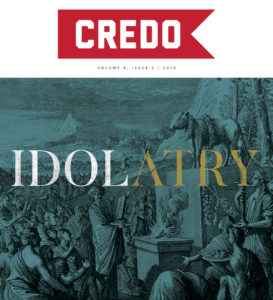The world is full of books. And not all these books are worth reading. Occasionally, God blesses his people with a timeless book. In The Lost Sermons of C. H. Spurgeon Volume 2 (B&H Academic, 2017), God’s people are given more early content for Spurgeon lovers.
 As well as including Spurgeon’s outlines and notes for sermons 78 through 134, the volume provides readers with a thorough preface highlighting the trials Spurgeon faced as he stood against the evils of Antebellum slavery in America (xvii-xx), and the growing interest in Spurgeon in the church and academy (xxi). It is in the preface where readers will find the purpose of the book (and the entire project). The book states that “the publication of Spurgeon’s lost sermons will inspire future generations of scholars to mine the theological still untapped . . . this project will promote a reinvigorated sense of unity, mission, and Christian witness throughout evangelicalism (xxi).
As well as including Spurgeon’s outlines and notes for sermons 78 through 134, the volume provides readers with a thorough preface highlighting the trials Spurgeon faced as he stood against the evils of Antebellum slavery in America (xvii-xx), and the growing interest in Spurgeon in the church and academy (xxi). It is in the preface where readers will find the purpose of the book (and the entire project). The book states that “the publication of Spurgeon’s lost sermons will inspire future generations of scholars to mine the theological still untapped . . . this project will promote a reinvigorated sense of unity, mission, and Christian witness throughout evangelicalism (xxi).
One of the key strengths of the volume is the well thought out endnotes after each sermon manuscript. Within these notes, one may find answers to Spurgeon’s text or background on the sermon manuscript itself. For example, in sermon 78 entitled “Self-Deception,” endnote three informs readers of the inkblot appearing in the unclear original text (37). Other notes throughout the volume include cross-references to Spurgeon’s later works such as the complete 63-volume set of his sermons, and his four-volume Lectures to My Students. The cross-reference notes serve as a reference to demonstrate the development of Spurgeon’s ministry philosophy and doctrine throughout his life.
The endnotes are the “meat” of the book, as it were. The book seeks to make Spurgeon’s early ministry clear to readers. Without the notes, readers would miss the subtle nuances in Spurgeon’s thoughts. One endnote of interest to the reviewer is the “V.I.91” inscription. The editors of The Lost Sermons searched for six months to locate the source of the above inscription. They found that the inscription refers to one of four references to Sketches of Sermons: Preached in Various Parts of the United Kingdom and on the European Continent Furnished by Their Respective Authors, and two similar references to Charles Simeon’s Horae Homileticae and Sketches of Sermons. Learning from previous preachers’ works was instrumental in Spurgeon’s early preaching (122). From the notes, readers can understand the context of and thought behind Spurgeon’s earliest sermons. It is worth the reader’s time to become familiar with the content of the endnotes.
Why should this project merit the attention of all in God’s Church? First, when the Lost Sermons project is complete, the large body of literature will be increased by ten percent. When one considers the massive collection of Spurgeon literature already available to interested readers, a ten percent increase is significant.
Second, these sermons reveal a young Spurgeon. His humanity is put on display as readers see the Prince of Preachers in the young, formative years of his ministry. His mistakes and sometimes incomplete thoughts are not edited out to show the Prince’s humanity. Volume two is sure to encourage young men in ministry to keep pressing forward in ministry. Volume two is sure to encourage young men in ministry to keep pressing forward in ministry. Share on X
Third, the sermons themselves are pithy. Consider these quotes:
- “See Jesus crucified and you shall see him forever” (71).
- “None can sit in these scales, for all are as light as a feather. Yet, Jesus will be weighed for his saints. We are complete in him” (107).
- “If Christ be not the slayer of lust, it will never die” (135).
- “To have God in our foreheads is to show him, in our hearts to love him, between our shoulders is to strengthen us” (187).
- “Sanctification is not the root but the fruit” (203).
- “In the hour of death, in judgement, we have strong confidence that we are saved, secure for ever” (247).
The above six quotes demonstrate the impressive rhetoric of young Spurgeon. The sermon outlines are alone worth the price of the book. If you do not own a copy, order one today. If you are a pastor, seminarian, missionary, layperson or Spurgeon aficionado, you will benefit from The Lost Sermons of Charles Spurgeon Volume 2.


